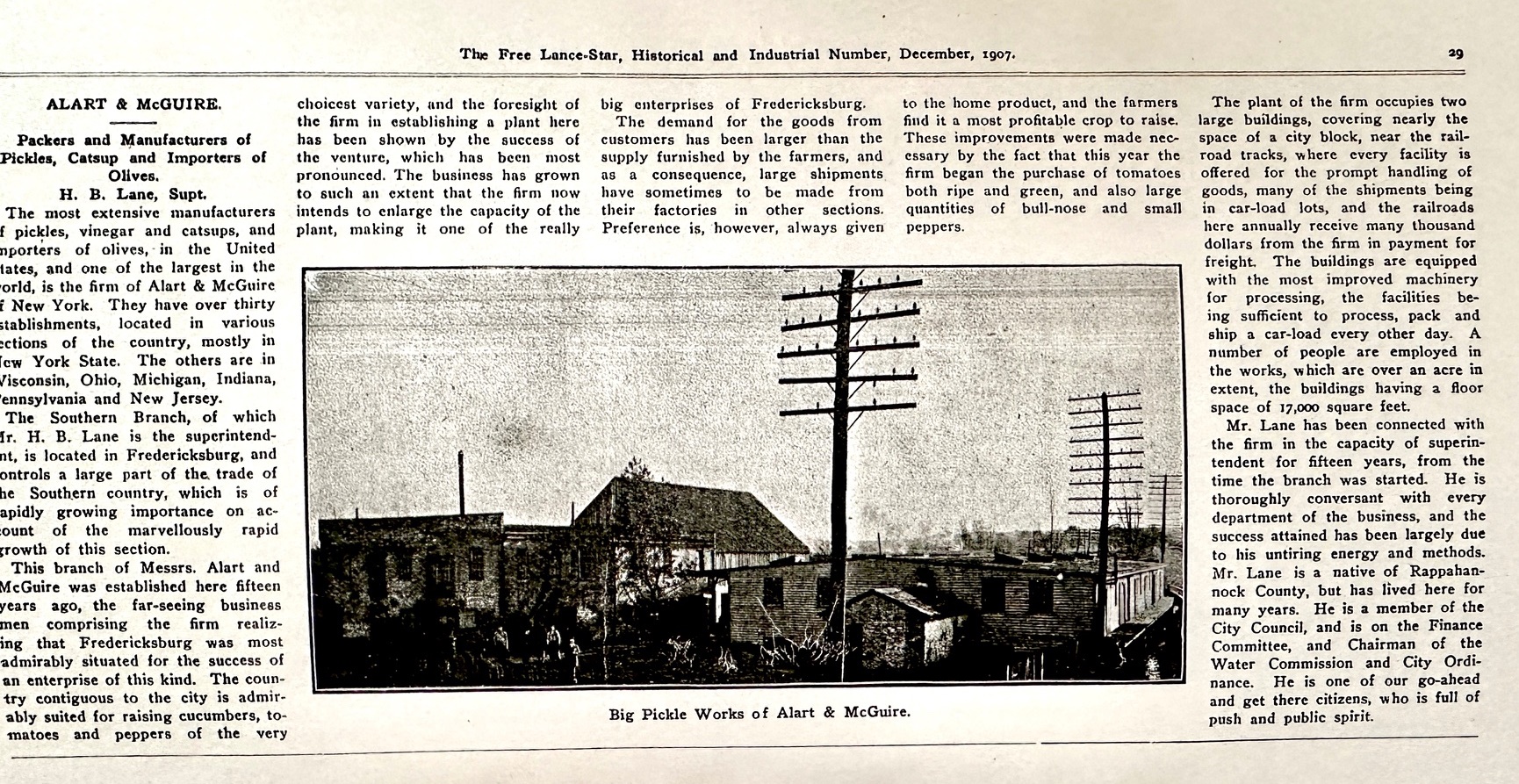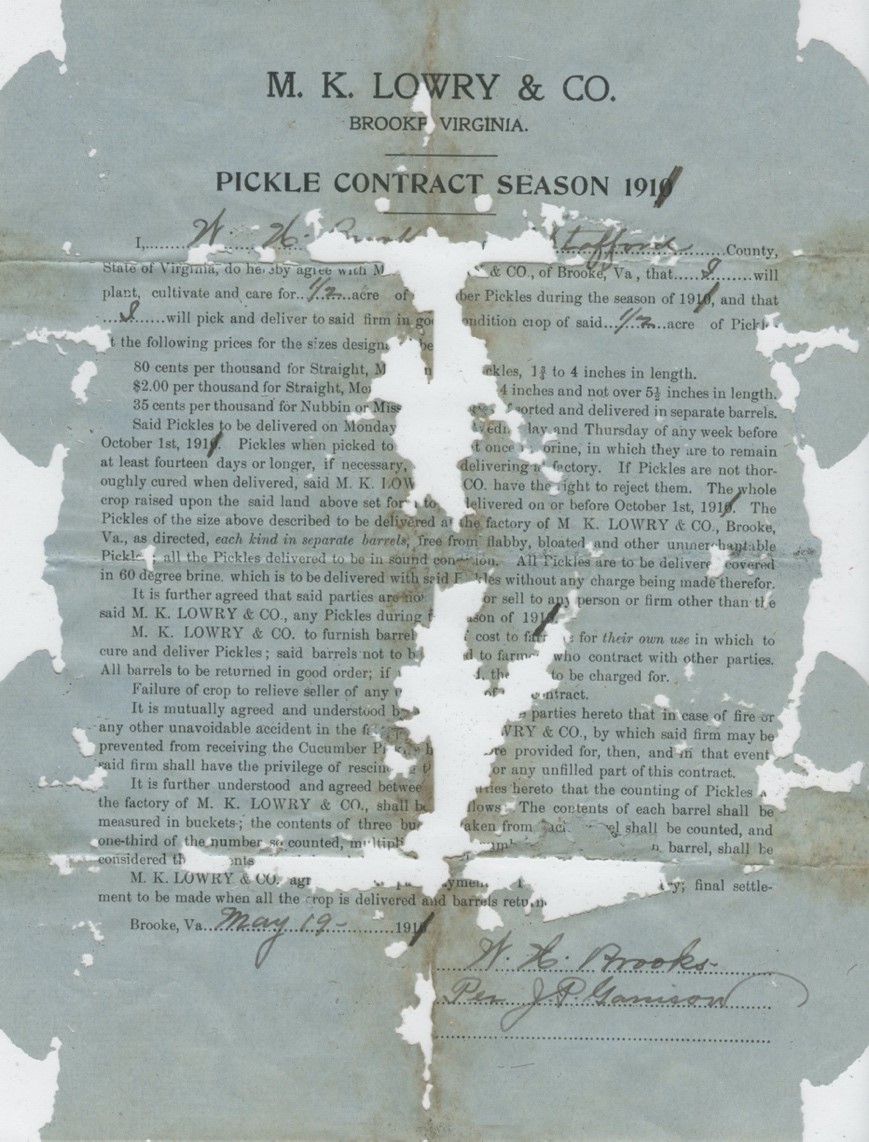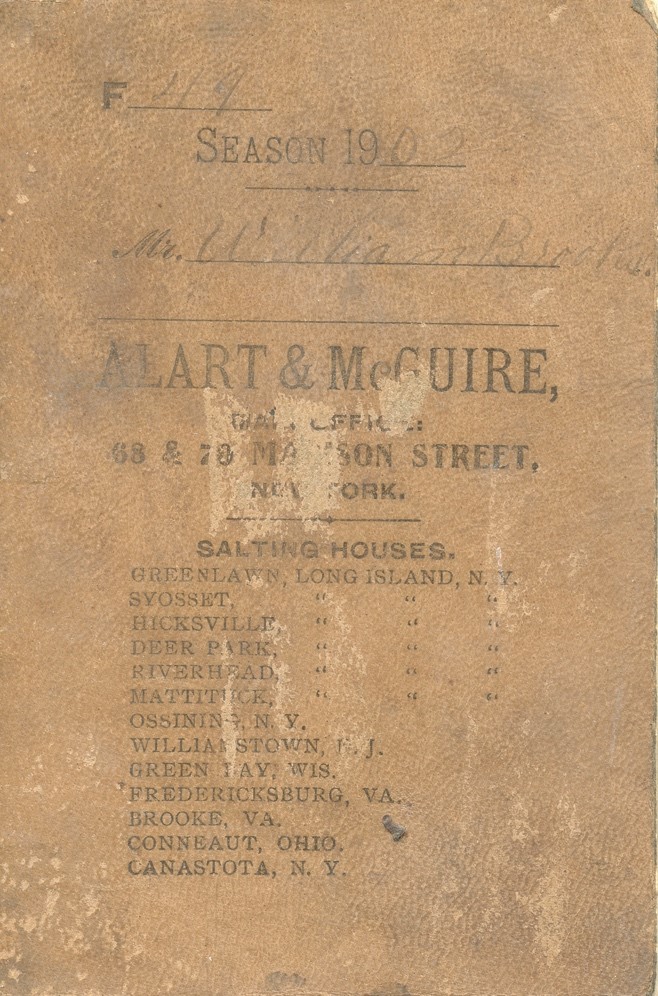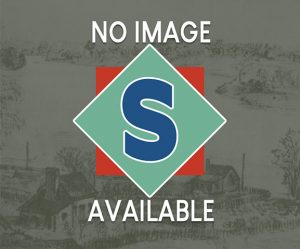Brooke Pickle Factory
From the late 1800s until around 1930, Stafford County was one of the leading producers of pickling cucumbers in the state of Virginia. Stafford was known as the Pickle Capital of America! In 1903, 97% of Stafford farms produced 2/3rds of all the cucumbers for pickles shipped from Virginia. As early as 1893 there was a pickle-brining operation in Brooke. Various companies ran operations in Brooke even until the 1930s. Cucumbers would be placed in vats that were 10 ft. in diameter and almost as high. The vats would then leave on railroad cars and be taken for further processing. There was also another pickle factory in Falmouth. Growing cucumbers and making pickles was a thriving industry in Stafford.
Nearly everyone with a few acres to spare grew cucumbers and sold them either to the Brooke Pickle Factory at Brooke or to a similar facility in Falmouth. A September 1901 newspaper notice stated,
“‘Tis said one of our Onville friends met with quite a mishap going to the factory with a load of pickles some time since; one of the barrels upset, throwing the pickles to the ground, all of which had to be picked up and wiped off, one by one; the sun was so hot before our friend got thorough, that when he arrived at the factory he came near passing himself off for a pickle, so well was he ‘cured’ by the sun” (Free Lance, Sept. 19, 1901).
This little blurb was written by Charles Adams Bryan (1849-1918) who was for many years clerk of the court for Stafford. He was a regular contributor of little “newsy” and humorous articles to the Free Lance newspaper and wrote under the pen name Scribbler.
In the 1840s, the R F & P Railroad was built through a sleepy crossroads in eastern Stafford County. Named for the Brooke family who owned a farm and grist mill at the crossroads, the area became known as Brooke. The railroad company erected a station for freight and passengers and various businesses soon followed, including general merchandise stores, blacksmith’s shops, a pickle brining facility, and a tomato cannery.
The Brooke Pickle Factory was opened around 1890 by two African American entrepreneurs, Solomon G. Willis (died 1937) and William Johnson. In 1890, the pair purchased one acre next to what is now Mount Hope Baptist Church. By 1893, Willis and Johnson were operating the firm of S. G. Willis and Company at that location. Sometime before his death, Solomon moved to Spotsylvania County and conducted a pickle factory at Mayfield.
Around 1893, the Alart and McGuire Pickle Company of New York took over the brining operation at Brooke, though local men continued running and managing it. Alart and McGuire hired Brooke resident Marion K. Lowry to run the Brooke facility. Lowry placed the day-to-day management of the operation in the able hands of local African American John Norton Dishman (1863-1951). In addition to the seasonal work at the pickle factory, John also ran a nearby store and taught school. He donated the land upon which Mount Hope Baptist Church now stands and the pickle factory adjoined that property. He left Brooke temporarily and moved to Caroline County to manage another Alart’s facility at Milford, but subsequently returned to Brooke. John served as clerk of Mount Hope Church for 61 years and as superintendent of the Sunday School for 63 years.
Around 1896, J. Marshall Porter (died 1946), another enterprising local African American businessman, took over the processing of pickles at Brooke. This may have occurred during Dishman’s absence. In addition to processing pickles, Porter was also the local shoe repairman and kept a shop in or near Brooke for some years. He later moved his shoe repair business out to a site on U. S. Route 1 just south of Stafford Courthouse. In addition, Mr. Porter was a preacher and trustee for Locust Grove Baptist Sunday School on Wyche Road in Stafford.
By the early 20th century, pickle cultivation was a major occupation in Virginia. “As an opportunity for men of small means, few acres and lack of practical knowledge, it is questionable whether any business in the world offers such a chance for a man to make money as the growing of cucumbers for pickles, where the ground is adapted.” By 1903, a Virginia newspaper observed, “By a very conservative estimate ninety-seven percent of the farms in [Stafford] are to-day growing cucumbers for the pickle buyers.” At this point, Stafford was growing about two-thirds of the pickles shipped from Virginia. Farmers found on average that they could produce from 100,000 to 200,000 pickles per acre, yielding a profit of up to $150 per acre, a substantial sum at that time. Young children were usually put to the task of picking the cucumbers, thus eliminating the need to hire additional workers.
The Brooke facility was for brining cucumbers only. The seasoning and bottling of the pickles was done elsewhere. The Brooke operation featured three metal vats approximately ten feet in diameter and nearly as tall. This was an open-air facility with no need for any type of roof or walls. Farmers from all around Stafford brought their cucumbers to Brooke by the wagon-load. The foreman carefully checked each cucumber as they were dumped onto the scale for weighing. Any that exceeded two inches in length or were less than perfect in appearance were culled and the farmer was not paid for them. Once the cucumbers were sufficiently brined, they were packed in fresh containers, loaded on nearby railroad cars, and shipped elsewhere for final processing.
In 1925, the pickle factory burned to the ground. It was rebuilt during the 1930s and was operated by C. C. Lang and Company of Baltimore. It closed permanently sometime after 1933.




Sources:
Eby, Jerrilynn. Alart and McGuire, farmer’s ledger, 1902. Private collection.
Eby, Jerrilynn. C. C. Lang & Son contracts. Private collection.
Eby, Jerrilynn. M. K. Lowry & Company, contract for 1914. Private collection.
Fredericksburg Daily Star. Aug. 23, 1906, “Brooke pickle warehouse.”
Fredericksburg Daily Star. Nov. 16, 1925, Brooke Pickle Factory burned
Free Lance. Apr. 28, 1900, “Another Pickle Factory.”
Free Lance. July 1, 1901, report on the local pickle industry.
Free Lance. Oct. 4, 1904, “A Large Pickle Crop.”
Free Lance-Star. June 17, 1937, obituary of Solomon G. Willis.
Free Lance-Star. May 31, 1951, obituary of John N. Dishman
Stafford County Deed Book 4, p. 249, Feb. 10, 1890, deed, E. A. Grove and wife to Solomon Willis and William Johnson
The Times (Richmond, VA). Jan. 18, 1903, “Pickle Raising Very Profitable.”
Virginia Citizen (Irvington, VA). Feb. 6, 1903, report on the pickle industry


